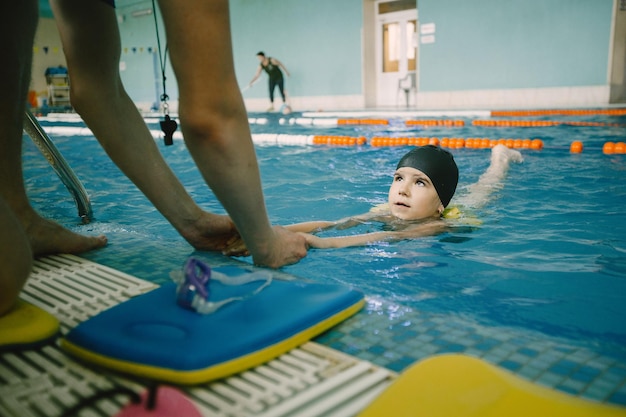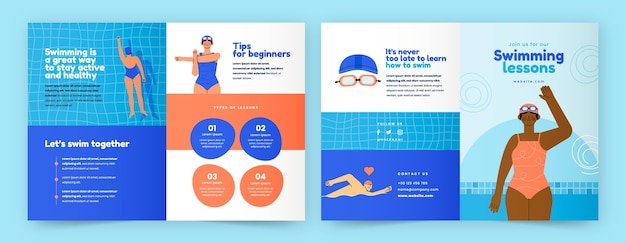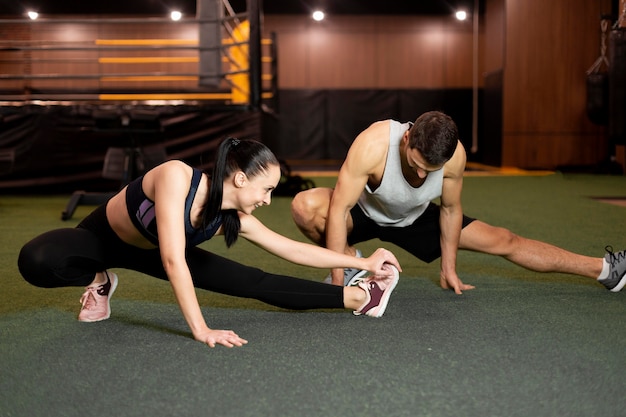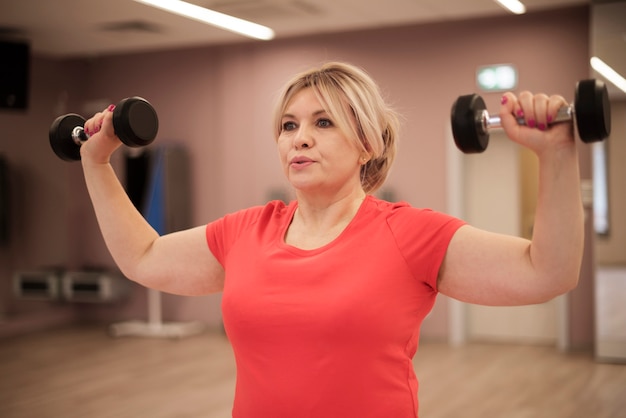14 Proven Ways to Build Muscle with Swimming Laps: A Beginner’s Guide to Strength, Stamina, and Safety
Swimming is often praised for its cardiovascular benefits and low-impact nature, but did you know it can also help you build muscle? Unlike weightlifting, swimming builds lean, functional muscle through resistance provided by water. For beginners, it's a safe and effective way to improve strength, endurance, and overall fitness. This guide explores 14 practical ways to grow muscle with swimming laps, complete with weekly targets, expert tips, and essential safety reminders.
Why Swimming Builds Muscle
Water provides about 12 times more resistance than air, meaning every stroke, kick, and glide works your muscles harder. Unlike traditional gym workouts, swimming engages multiple muscle groups simultaneously — including shoulders, back, core, glutes, and legs — making it a full-body strength workout. Because it’s low-impact, it reduces stress on joints, making it ideal for beginners or those recovering from injury.

14 Ways to Grow Muscle with Swimming Laps
- Focus on Proper Technique
Efficient strokes reduce drag and increase muscle engagement. Learn freestyle, backstroke, breaststroke, and butterfly with correct form to maximize resistance and muscle activation.
- Increase Lap Frequency Gradually
Start with 10–15 laps (250–375 meters) 3 times a week. Gradually increase to 20–30 laps 4–5 times weekly over 6–8 weeks.
- Use Interval Training
Alternate between high-intensity laps and recovery laps. For example: 1 fast lap followed by 1 slow lap, repeated 10 times. This boosts muscle endurance and metabolic rate.
- Incorporate Different Strokes
Each stroke targets different muscles. Freestyle works shoulders and core; breaststroke emphasizes inner thighs and chest; butterfly builds upper back and core strength.
- Add Resistance Tools
Use swim paddles, pull buoys, or drag suits to increase resistance. Paddles enhance upper-body strength, while buoys isolate arms by eliminating leg use.
- Engage Your Core Constantly
Activate your abdominal muscles with every stroke. A strong core improves stability, stroke efficiency, and builds midsection strength.
- Focus on Kicking Drills
Dedicate 10–15 minutes per session to kicking with a kickboard. This builds quadriceps, hamstrings, and glutes while improving leg endurance.
- Swim Against the Clock
Set lap time goals. Trying to swim each lap faster than the last increases intensity and muscle recruitment.
- Try Pyramid Sets
Swim 1 lap, rest, then 2 laps, rest, up to 5 laps, then back down. This builds muscular endurance and mental focus.
- Stay Consistent Weekly
Commit to 3–5 sessions per week. Muscle growth requires consistent stimulus. Even 20-minute sessions can yield results over time.
- Track Your Progress
Log lap count, time, and perceived effort weekly. Seeing improvement motivates continued effort and helps adjust goals.
- Pair Swimming with Dryland Exercises
Complement your swim routine with bodyweight exercises like push-ups, planks, and squats 2–3 times a week to enhance overall muscle development.
- Stay Hydrated and Eat for Recovery
Swimming burns significant calories. Support muscle growth with adequate protein, complex carbs, and hydration.
- Rest and Recover
Muscles grow during rest. Take at least one full rest day per week and ensure quality sleep to support recovery.
Beginner Weekly Target Plan
| Week |
Sessions/Week |
Laps/Session |
Focus |
| 1–2 | 3 | 10–15 | Technique & Consistency |
| 3–4 | 4 | 15–20 | Endurance & Strokes |
| 5–6 | 4–5 | 20–25 | Interval Training |
| 7–8 | 5 | 25–30 | Strength & Speed |
Safety Reminders for Beginners
- Always warm up with 5 minutes of light swimming or dynamic stretches.
- Stay hydrated — you sweat in water, even if you don’t feel it.
- Don’t push through pain. Sharp or persistent discomfort means stop and rest.
- Swim in designated areas with lifeguards when possible.
- Use proper gear: well-fitting swimsuit, goggles, and swim cap.
- Know your limits. Build intensity gradually to avoid overuse injuries.

Final Thoughts
Swimming laps aren’t just for cardio — they’re a powerful tool for building lean muscle, especially when done with purpose and consistency. By focusing on technique, increasing intensity, and following a structured plan, beginners can achieve noticeable strength gains in just a few weeks. Combine your swim routine with proper nutrition and rest, and you’ll be on your way to a stronger, healthier body — all while enjoying the soothing, joint-friendly nature of water.
Dive in, stay consistent, and watch your strength grow — one lap at a time.









